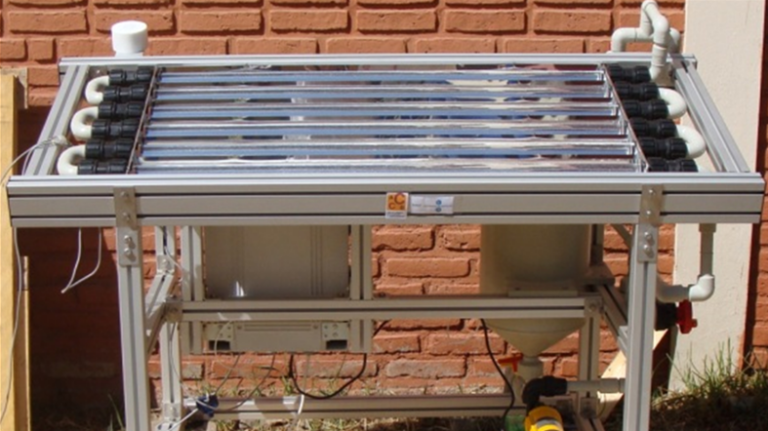Result description
In most of developing countries, large quantities of used pesticide containers accumulate on the margins of fields and rivers, being this an important source of environmental contamination. The disposal and cleaning of these containers, and the subsequent treatment of generated wastewaters, could reduce uncontrolled dumping of pesticides in the natural environment.
KNOWPEC project (Knowledge for pesticides control), from H2020-MSCA-RISE-2015 programme (grant agreement n° 690618) has been working in the last 3 and a half years on the study of occurrence, environmental risk assessment and remediation approaches to pesticides pollution in several agricultural sites in Latin America. One of the approaches studied has been the proposal of low-cost and efficient treatment strategies, assisted with solar radiation, for wastewaters generated during the management and cleaning of pesticides containers after their use.
Photo-Fenton process, based on the combination of Fe+2 and H2O2 and assisted with solar radiation has emerged as a suitable treatment to implement in countries like Bolivia. Thus, the city of Cochabamba, characterized by its equatorial latitude and an altitude at 2570 masl, has an average annual solar radiation between 5.4-5.7 kW-h/m2-day, about the double from reported in Europe. The results obtained at pilot plant scale demonstrated the optimal performance of photo-Fenton process using solar radiation at low Fe+2 for the depletion of commercial persistent pesticides in wastewaters resulted from the cleaning of empty containers. This treatment could effectively be included in the correct management of empty pesticides containers strategies.
Addressing target audiences and expressing needs
- To raise awareness and possibly influence policy
Technolgoy should be further tested on different agricultural sites
- International Organisations (ex. OECD, FAO, UN, etc.)
- Private Investors
R&D, Technology and Innovation aspects
Experiments were carried out in a Solar DETOX ACADUS-2009/0.5 reactor of 15 liters of capacity. The tests were carried out in the city of Cochabamba (17° 23′ 33.7″South, 66° 8′ 40″ West, at 2570 masl), from 10 a.m. to 3 p.m. Technology should further be tested
Result submitted to Horizon Results Platform by DIMOKRITIO PANEPISTIMIO THRAKIS

